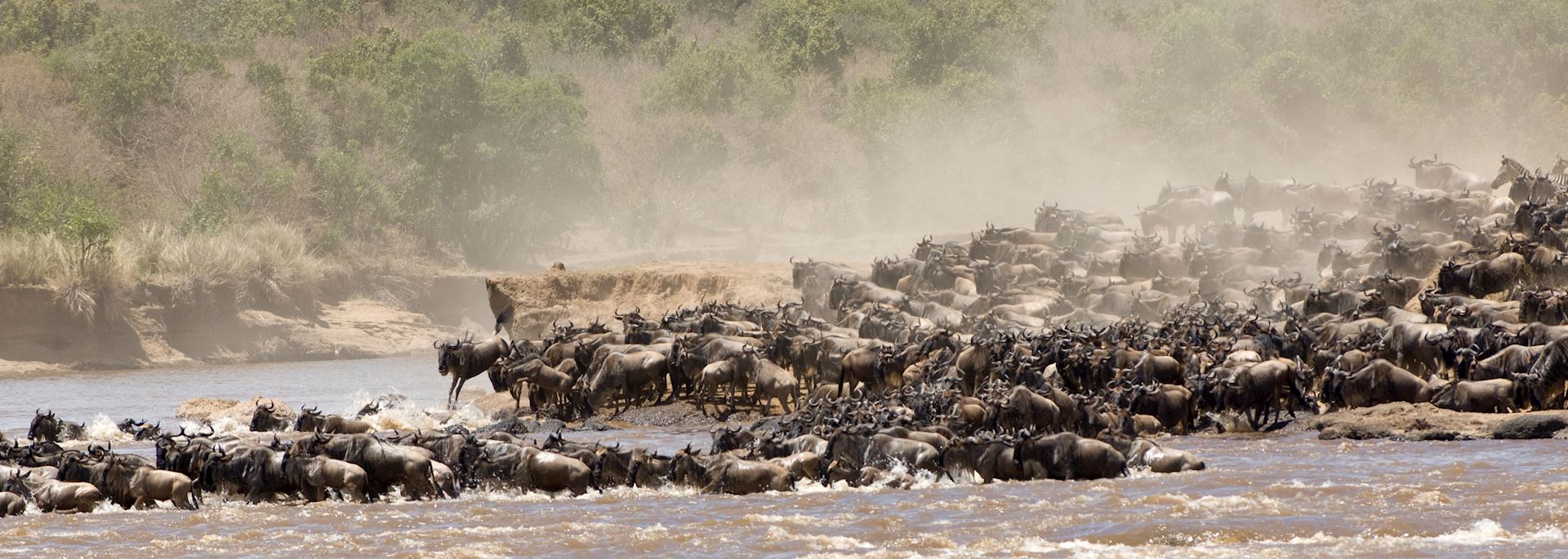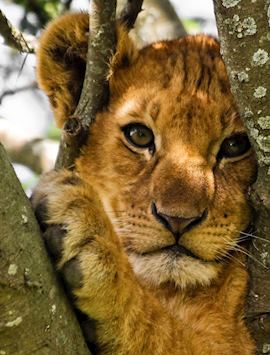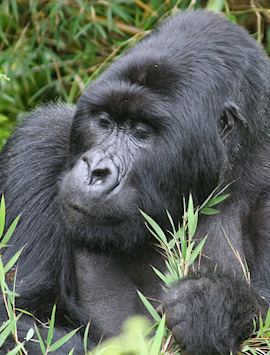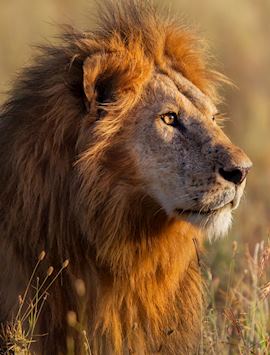By Africa Safari Specialist Mark
On Tanzania’s northern plains, in the Serengeti National Park, two million wildebeest and hundreds of thousands of zebra tread ceaselessly through the grass following the rain, while keenly watched by big cats, wild dogs and crocodiles. The Great Migration and its never-ending drama gives you the chance to observe a host of Africa’s wildlife in a single place.
But this land of vast plains can also offer up Africa’s highest peak, Mount Kilimanjaro in the northeast, and Africa’s largest national park, Nyerere National Park in the south. Watch lion, leopard, rhino, elephant and cape buffalo — collectively the Big Five — within the volcanic landscape of Ngorongoro Conservation Area.
And after the heat of the safari, the powder-sand beaches of Zanzibar and the other Indian Ocean islands are a blissful respite for snorkelling and diving.
Witness the Great Migration of herds on safari in the Serengeti
The stuff of wildlife documentaries, watching the Great Migration is one of my most memorable experiences in Tanzania. This mass movement of wildebeest plays out in Tanzania each year, culminating in the Mara River crossings between July and October.
In their search for fresh grazing, herds that can number thousands of animals risk the crocodile-infested river and the awaiting leopard on the far bank in many hazardous river crossings.
November’s short rains bring new life to the grasslands of the southern Serengeti. They also bring the wildebeest, who can detect rain from more than 50 kilometres away.
The herds converge on the Serengeti’s short grass plains, to give birth to their young in January time.
Keep moving with the herds on a Serengeti mobile safari
The herds’ precise movements are governed by rainfall and the best grazing, and when out on safari there is an element of being in the right place at the right time.
The lodges work closely with the park rangers to assess the animals’ most recent whereabouts. One option for keeping in step with the migration is staying in one of the Serengeti’s mobile safari camps.
As the name suggests, the camps up sticks every couple of months to be as close as possible to the spectacle. The essence of traditional safari, a mobile camp isn’t as luxurious as the permanent ones but you still get a proper bed to flop onto at the end of the day. Many of the camps are set just back from the Mara River, and I’ve found that the proximity to the wildlife is unparalleled.
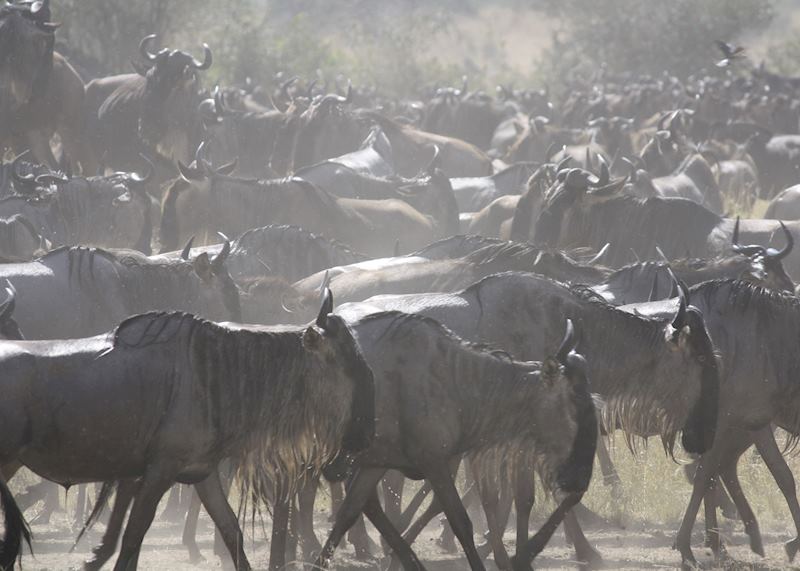
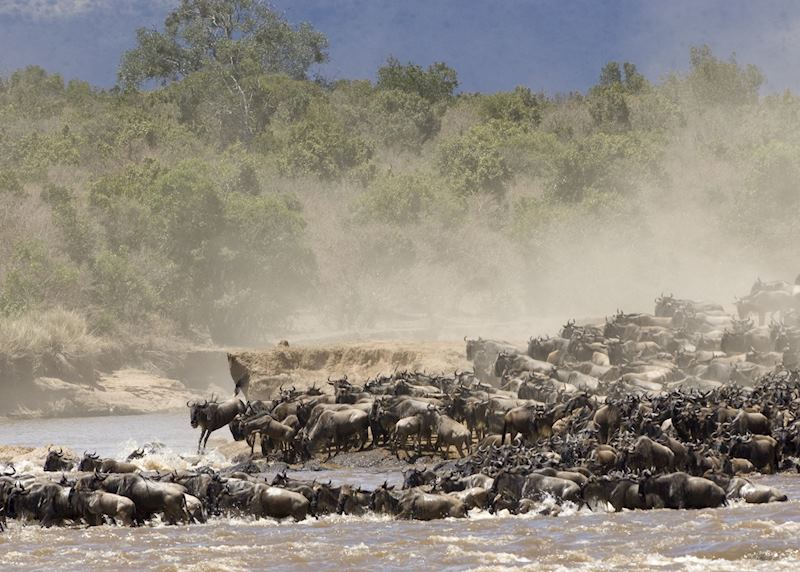
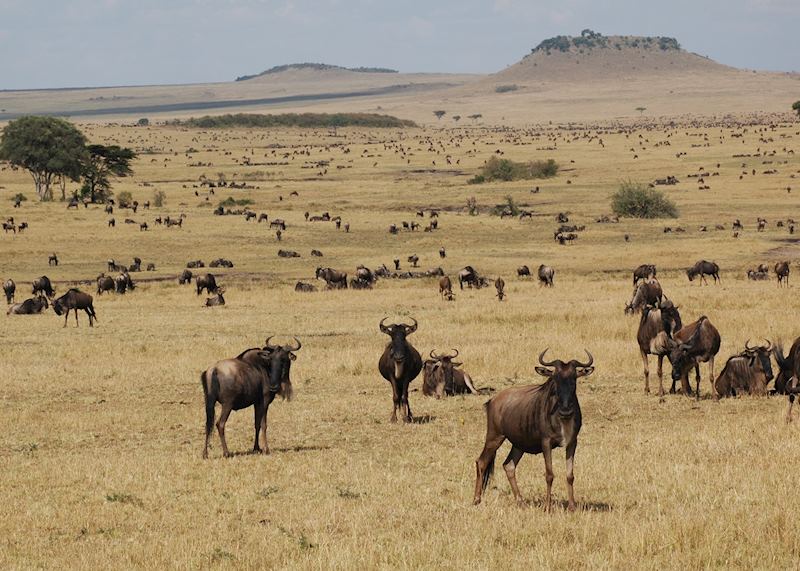
Remote safari experience in Nyerere National Park
Beyond the Serengeti in the south of Tanzania lies Nyerere National Park. Listed as a UNESCO World Heritage Site as "one of the largest remaining wilderness areas in Africa", Nyerere National Park feels like an undiscovered secret. That’s despite it being only 45 minutes by light aircraft from Tanzania’s main city, Dar es Salaam.
The park’s woodlands, grasslands and swamps play host to elephant, hippo, giraffe, zebra, buffalo, lion, and leopard. Nyerere National Park is also the last great refuge of the African wild dog, the wolves of Africa.
The Rufiji River cuts through the national park and draws the wildlife to its banks. You’ve the opportunity to see elephant playing in the water, giraffe coming to the water’s edge, crocodiles sliding into the river and hippo popping their heads out. Over your head, malachite kingfishers take flight from trees near the bank, while bee-eaters line up on branches.
Another safari alternative I’ve enjoyed time and again in Nyerere National Park is fly camping. You pitch your tent away from the lodge, and animals will walk right past if the camp crosses their tracks. I’ve sat by the campfire at dinner only to see an elephant loom out of the darkness. It’s a wild and exposed but exhilarating experience.
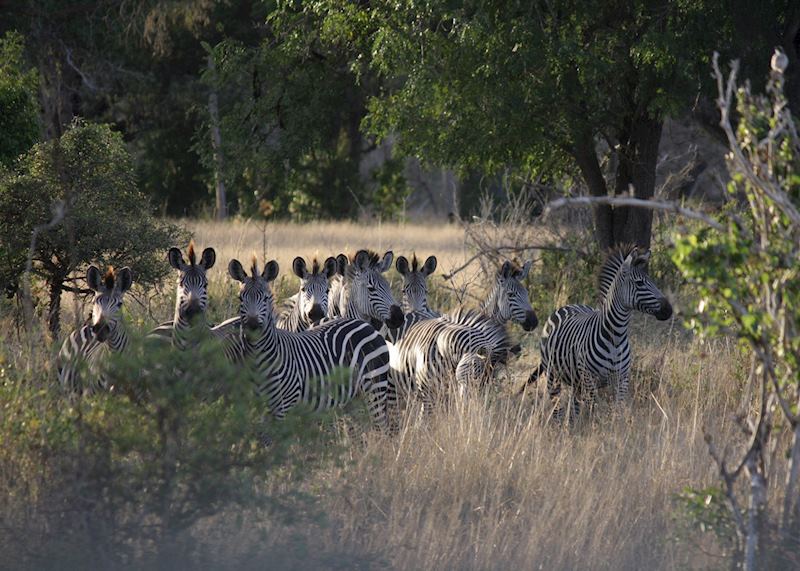
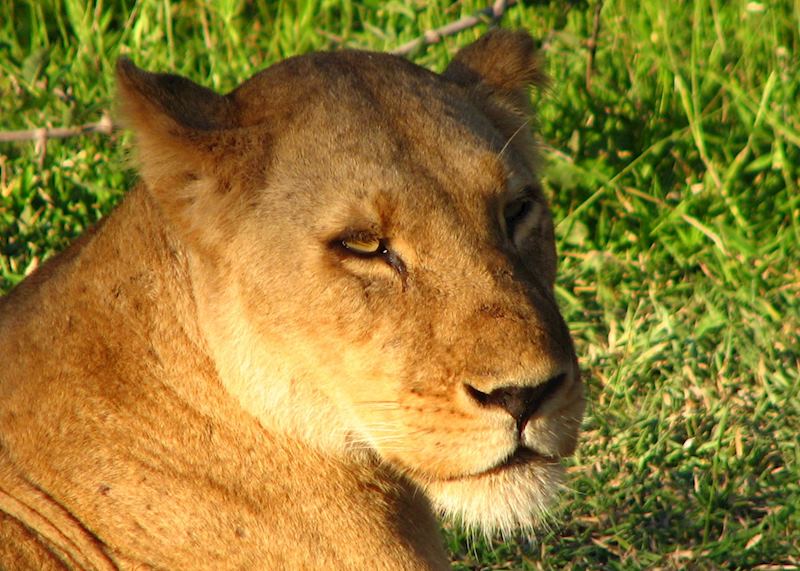
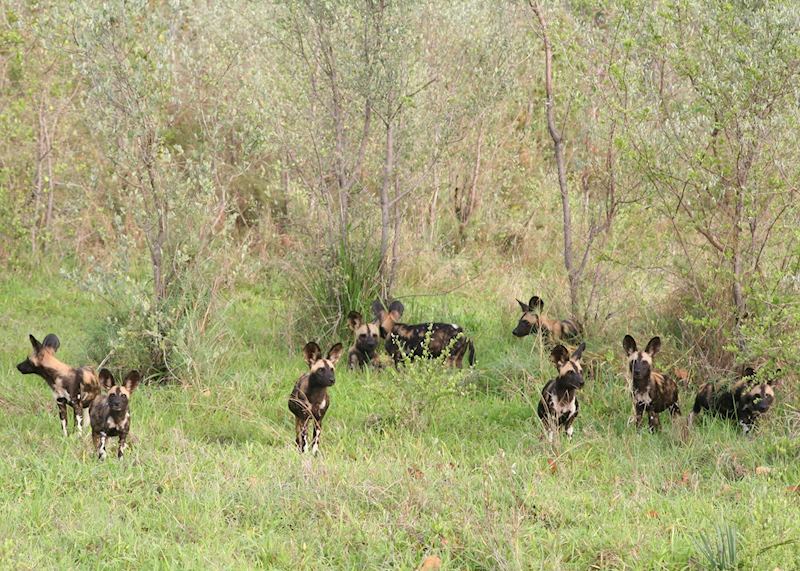
Ngorongoro Conservation Area
Southeast of the Serengeti, the Big Five roam Ngorongoro. This is the best place in Africa to see the black rhino, which I’ve seen in the early morning returning to the cover of the forest after a night on the shores of the crater’s salt lake, Lake Magadi.
The Ngorongoro Crater in the heart of the area is a volcanic caldera, the result of a volcano erupting and then collapsing in on itself two or three million years ago. Some of Africa’s densest populations of large mammals live within its 600-metre-high walls.
Thousands of zebra, buffalo, wildebeest and Thomson’s and Grant’s gazelle feed on the mineral-rich grass. Elephant live in the Lerai Forest in the southwest of the crater, as do lion and leopard. Large numbers of hippo wallow and birds wade in the lake.
Ngorongoro’s very geology makes it a confined area, and that means it’s also busy despite a limit on the number of vehicles. But you can skirt around the most crowded times with early-morning starts.
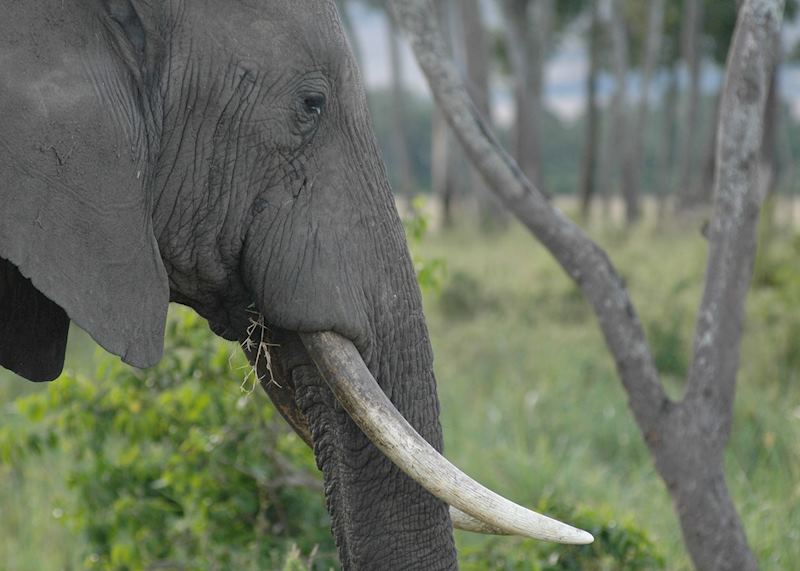
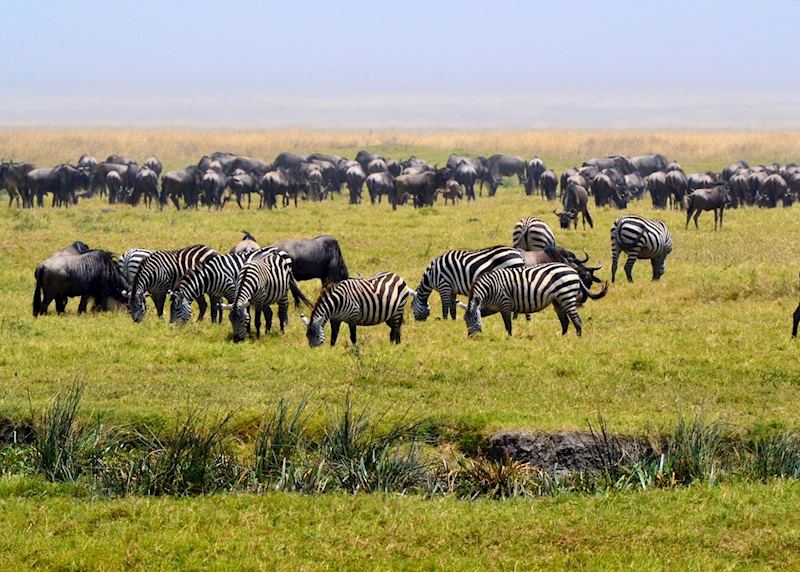
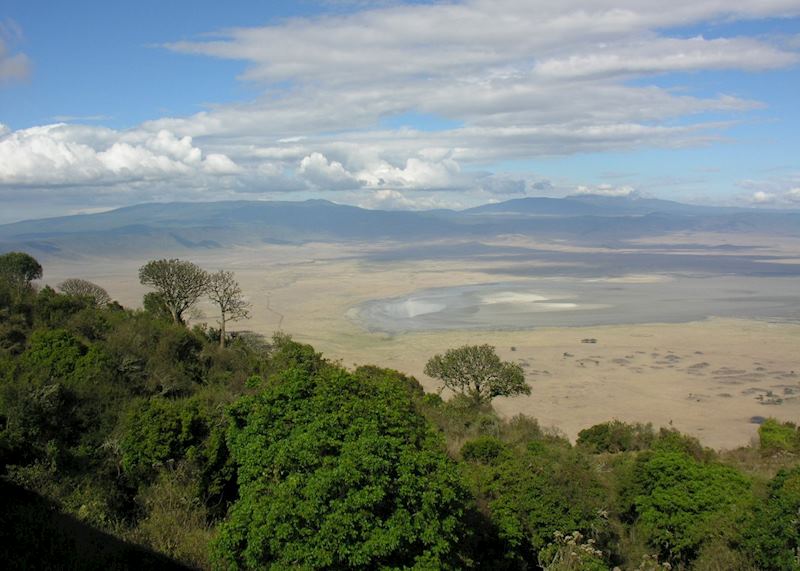
Beach stay in Zanzibar
Ending your trip to Tanzania with time on the beach lets you wash the dust off and forget all those early morning starts. The Zanzibar Archipelago lies just 30 kilometres off the Tanzanian coast, a string of tropical islands stretching out in aquamarine seas.
Zanzibar Island and Stone Town
There’s much more to Zanzibar than just beach. The largest island, Zanzibar, is fringed with powder sands and swaying palms but inland you’ll find spice farms growing vanilla and nutmeg, and coconut plantations.
Stone Town, a centuries-old hub for the spice trade and a UNESCO World Heritage Site, is the oldest part of the island. Walk through alleys that lead to the merchants’ residences made with thick stone walls and intricately carved doors that date from the 1600s. At dusk hundreds of dhows, the traditional sailing boat of the Indian Ocean, set sail for the night, their billowing white sails touched by the pink light of sunset.
For a remoter experience and a peaceful contrast to Zanzibar’s bustle, travel just north to Pemba Island.
Another option is Mafia Island Marine Park where from October to May you can watch whale sharks. Local boats will sail you to sand backs that temporarily appear with the shifting shores, from where you can snorkel among the coral.
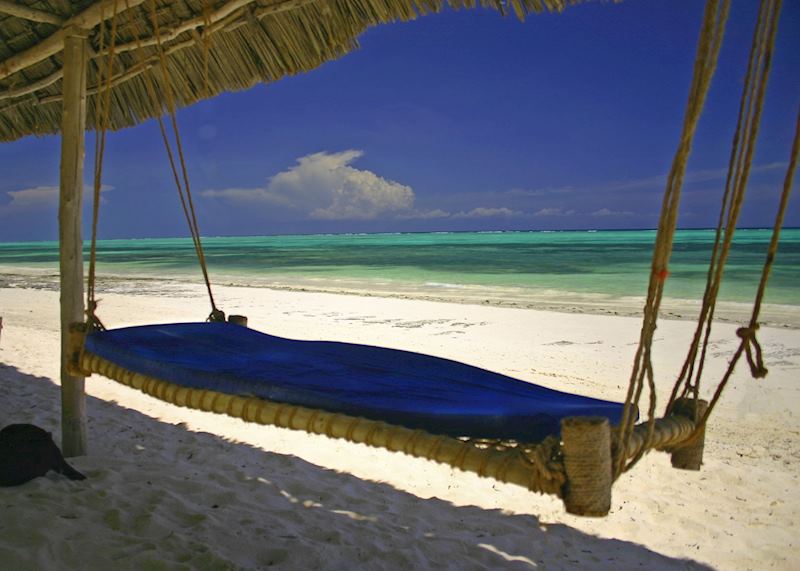
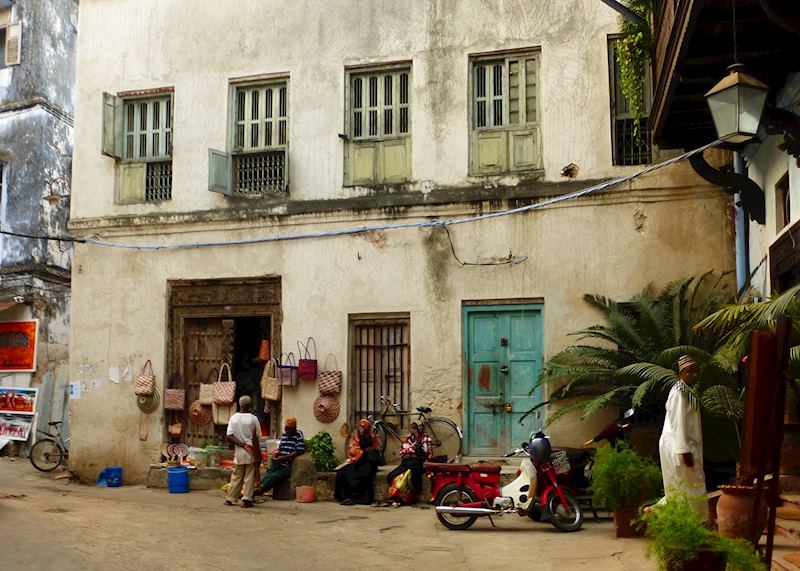
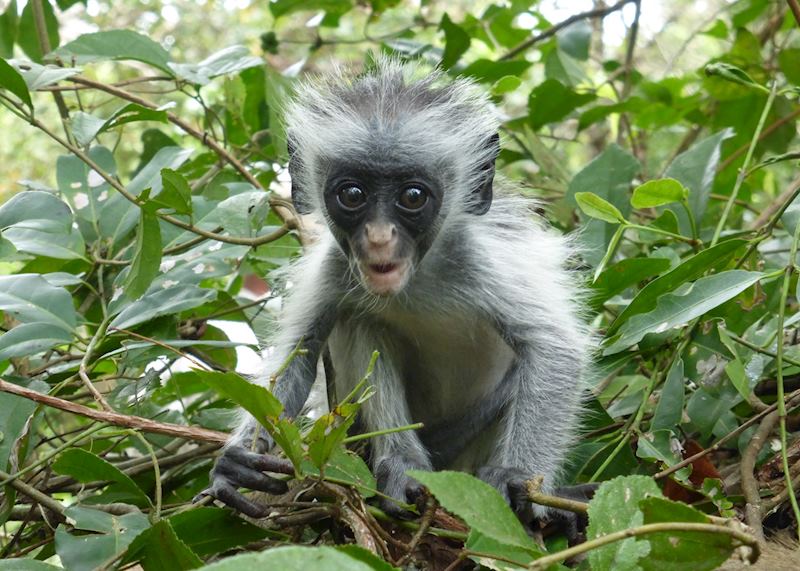
Climb Mount Kilimanjaro
If you fancy summiting a whole continent, climbing Africa’s highest peak (and also one of the largest volcanoes in the world) is an adventure that doesn’t take any technical climbing unlike the highest summits of the other continents.
Mount Kilimanjaro, or Kibo, rises from the dusty savannah plains of northern Tanzania, at 5,859 metres (19,341 ft) above sea level. You can conquer the mountain and reach the highest point — Uhuru, meaning “freedom” — on a trek that takes anything from six to eleven days.
As you ascend you pass through moss-covered forest that gives way to alpine desert and then glaciers. The snow-capped peak on a mountain so close to the Equator still takes me by surprise, as it first did the early explorers who thought they were being tricked by a mirage.
And if you’re less inclined to take on this level of activity, particularly with a rapid altitude gain, you don’t have to trek Kilimanjaro to admire its beauty. You can enjoy aerial views from your plane if you’re on safari in northern Tanzania or from the coffee town of Arusha, a jumping-off point for safaris in the Serengeti and Ngorongoro.
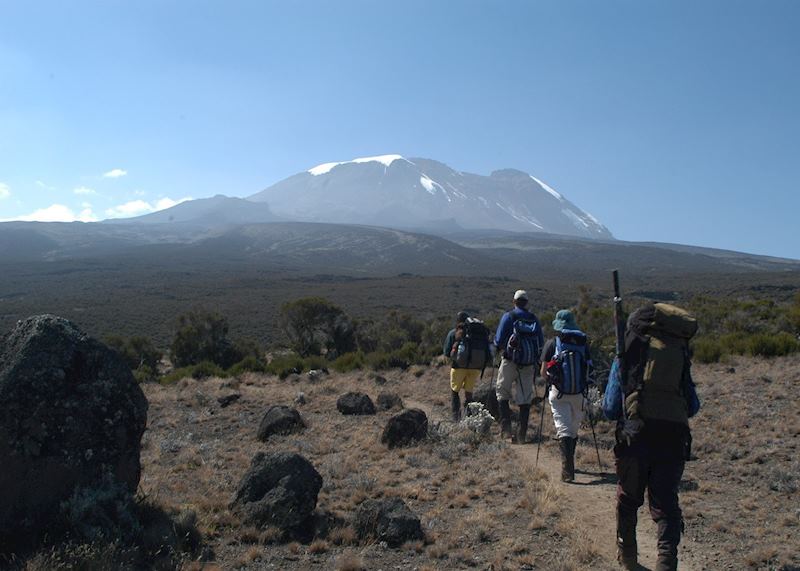
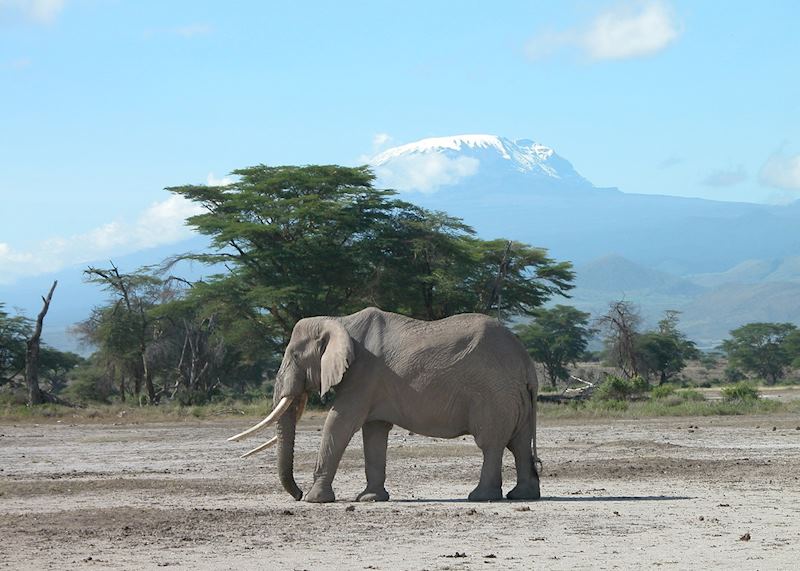
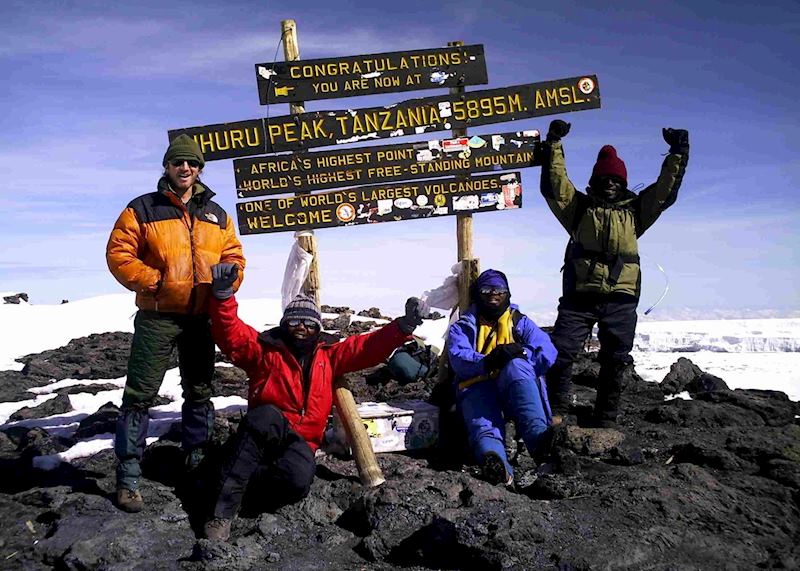
Start planning your trip to Tanzania
Start thinking about your experience. These itineraries are simply suggestions for how you could enjoy some of the same experiences as our specialists. They're just for inspiration, because your trip will be created around your particular tastes.
View All Tours in Tanzania
